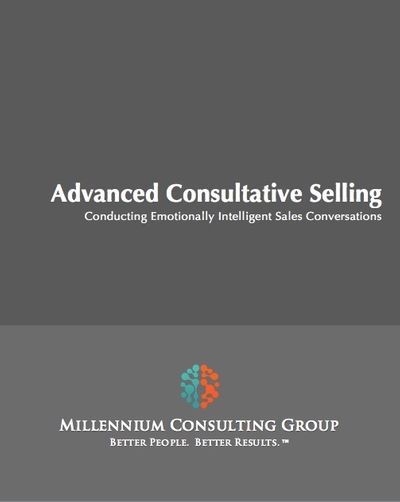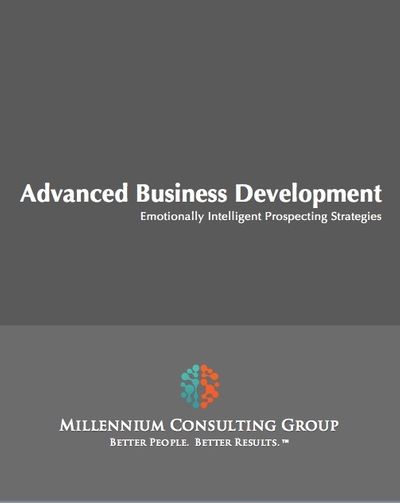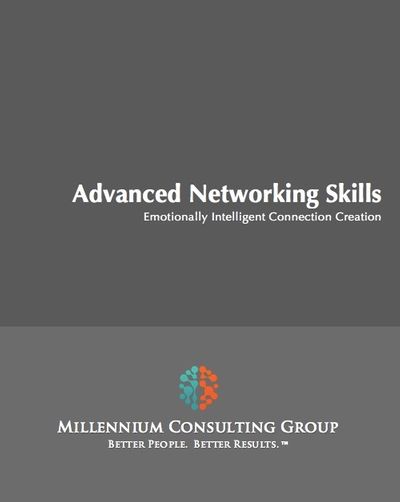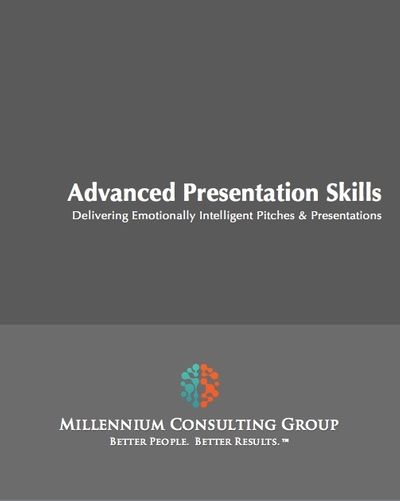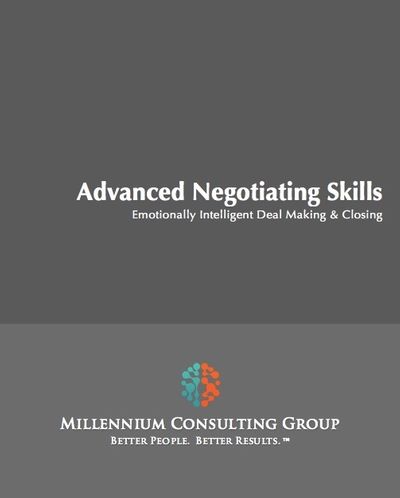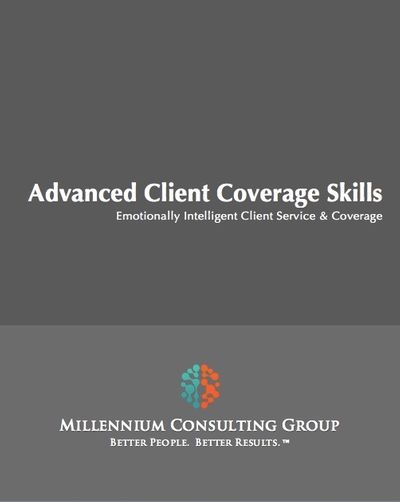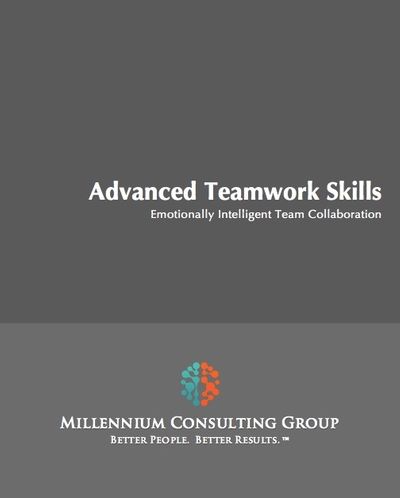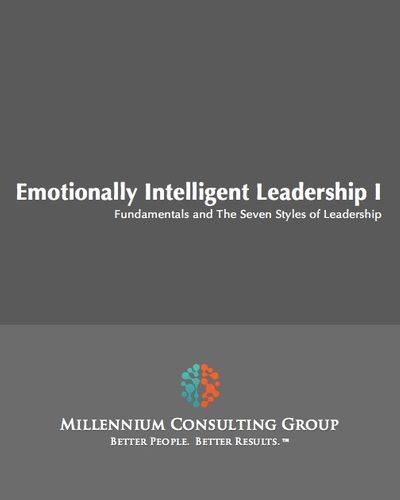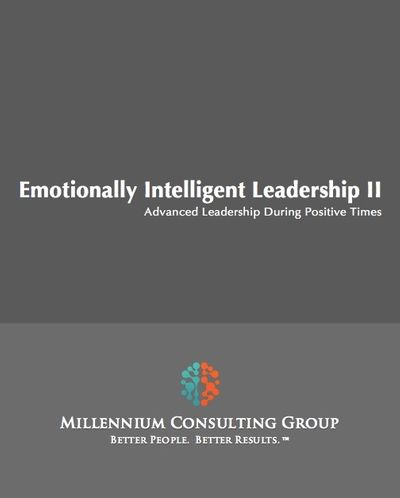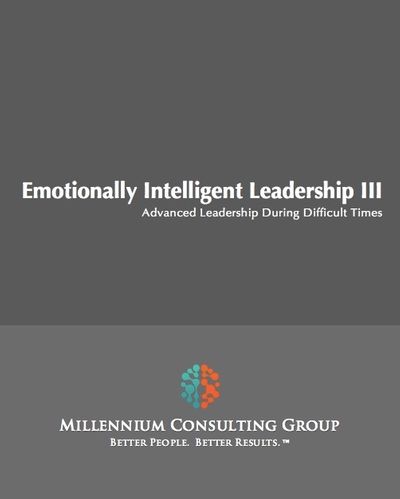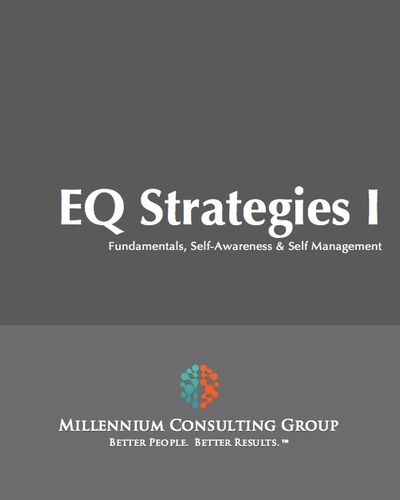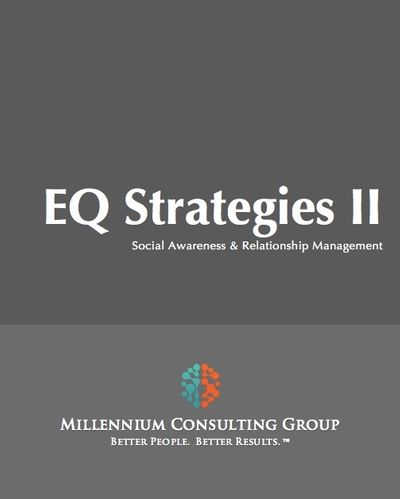Skill Courses For FI's
The Most Effective EQ (Emotional Intelligence) Fueled Skills Courses Available for Investment Banks, Commercial Banks, Private Equity Firms, Private Banks, Retail Banks, Wealth Management Groups & Financial Wholesalers

Advanced Consultative Selling
Course Objective - Provide participants with a comprehensive and systematic approach for conducting consultative financial conversations. Provide fundamental consultative selling tools, tactics and strategies to fuel all stages of the the financial sales interaction.
The days of "reactive product dump" sales pitches are almost a thing of the past. Financial professionals must add true consultative value and become a proactive trusted advisor if they hope to compete and win. No matter the client size or type (governments, corporate, commercial, institutional, high-net-worth and affluent) all demand an advice-based relationship with their financial provider. Our Advanced Consultative Selling program is designed to provide the perfect foundation for a world-class consultative sales experience. This program was designed to introduce participants to the most effective best-practices associated with each phase of the process. The step-by-step approach presented is easy to understand, easy to implement and packed with practical techniques and tools.
Topics discussed in the Advanced Consultative Selling course include:
- Understanding Level 1, 2 and 3 Performance
- Self Awareness/Self Management
- Social Awareness/Relationship Management
- EQ & The Consultative Selling Model
- The CARE Model & Emotionally Intelligent Selling
- Emotionally Intelligent Rapport Building
- Emotionally Intelligent Diagnostic Questioning
- Emotionally Intelligent Listening
- Emotionally Intelligent Solution & Idea Creation
- Emotionally Intelligent Presentations
- Emotionally Intelligent Advice & Mini-Pitches
- Emotionally Intelligent Objection Resolution
- Emotionally Intelligent Asking For The Business
- Emotionally Intelligent Closing
- Emotionally Intelligent Negotiating
- Emotionally Intelligent Client Service
Advanced Business Development
Course Objective - Provide participants with an advanced understanding of the financial services new business origination process. Outline more than 50 strategies for referral, networking and COI based business growth.
New business opportunities from existing and prospective clients are an essential element in the formula for success of any financial institution. New client acquisition through referral development, COI marketing and networking are always three of the primary areas of strategic focus for financial executives. Our Advanced Business Development program is laser focused on the prospect origination and referral creation processes. Specifically, the program introduces participants to the most effective referral, networking and COI-based growth strategies available to the financial professional.
Topics discussed in the Advanced Business Development course include:
- Understanding Level 1, 2 and 3 Performance
- Self Awareness/Self Management
- Social Awareness/Relationship Management
- EQ And Business Development
- The CARE Model
- Performance Impact Of Networking and Referral Development
- Tailoring Your Approach To Match Personality & Sophistication
- COI Growth Strategies
- Referral & Introductory Conversations
- Networking Event Skills
- Social Business Development
- Existing Client Expansion
- Modern B2B Cold Calling Fundamentals
- Modern B2B Cold Calling Call Prep
- Modern B2B Cold Calling Situations
- Modern B2B Cold Calling Conversations
- How to Implement and Sustain
Advanced Networking Skills
Course Objective - Provide participants with an advanced set of networking tools that will allow them to make new connections and, ultimately, convert those connections into real business opportunities.
One of the common characteristics of financial industry top producers is a high networking IQ. Financial professionals with a high networking IQ have the ability to build and maintain a powerful network of business and personal connections. And, they are expert at converting those connections into actual business opportunities. In the age of technology the term networking means a lot more than simply attending industry events. Participants learn how to identify their best networking opportunities (events, colleagues, alumni, communities, clients, associates etc.). Participants will also learn strategies and tactics that will allow them to capitalize on those opportunities and transform their network into a profit center.
Topics discussed in the Advanced Networking Skills course include:
- Understanding Level 1, 2 and 3 Performance
- Self Awareness/Self Management
- Social Awareness/Relationship Management
- EIQ And Networking
- The CARE Model
- The Network As A Profit Center
- Networking Events
- Social Networking (LinkedIn)
- Alumni Networking
- Personal Networking
- Creating Introductions
- Cold Introductions
- Dealing With Bad Introductions/Connections
- Typical Mistakes (Events & Social Networking)
- Converting Connections Into Opportunities
- How to Implement and Sustain
Advanced Presentation Skills
Course Objective - Provide participants with a best-practice-based toolbox for delivering highly effective presentations, speeches and one-to-one pitches.
Great opportunities often fall apart during less than stellar presentations. Financial clients are often confused, turned-off or bored by robotic product and information dumps. Having the ability to create and deliver a clear and concise message is an integral skill for all financial professionals. Sometimes your pitch is delivered in an elevator, other times it is in a boardroom and sometimes it is in a letter or through email. Getting your message across can be the difference maker between winning a new client and time wasted. Instruction is focused on how the best think about, build and deliver high impact presentations and messages.
Topics discussed in the Advanced Presentation Skills course include:
- Understanding Level 1, 2 and 3 Performance
- Self Awareness/Self Management
- Social Awareness/Relationship Management
- EQ And Presentations
- The CARE Model And Presentations
- Remember When Slides Were New & Cool
- Balls, Strikes And Wild Pitches
- Top 10 Client Pitch Turn Offs
- Top 10 Client Presentations Wish List
- The Anatomy Of A Perfect Pitch
- Developing Powerful And Simplified Messages
- The Importance Of Message Packaging
- The First Pitch - Opening The Game
- Making The Delivery Memorable
- Avoid The Pitch-Book Robot Trap
- Using Stories & Story Selling
- Involving Participants & Interaction
- The Final Pitch-Closing The Game
- The Pitch After The Pitch
- How To Implement & Sustain
Advanced Negotiating Skills
Course Objective - Help participants develop a win-win (non confrontational) approach to dealmaking, asking for the business, objection resolution and closing. Prepare participants to negotiate effectively with a multitude of personality types.
Negotiating is becoming more and more difficult for the typical financial professional. Today's financial client has access to a greater number of competitive options and far more information than ever before. And that means more leverage, dealmaking ammunition and negotiating appetite for the prospective client. Furthermore, as internal corporate culture evolves away from the command and control model of the past and toward the collaborate and communicate culture of the future, conducting win-win internal negotiations becomes less of a success skill and more of a survival skill. Respectful and fair negotiation is one of the key drivers of positive relationship growth. Working with others to get them to yes, and to secure a mutually beneficial agreement, is, however, one of the tougher skills to develop. Unfortunately, many consider a negotiation to be a fight that they win or lose. The best know that the goal is to bring about a "win-win" outcome for everybody.
moreAdvanced Client Coverage Skills
Course Objective - Introduce participants to financial relationship specific client service and client coverage best practices. Provide participants with transactional and non-transactional strategies for client expansion and retention.
Most of our clients are open to new ideas and idea pitches from competitors. Covering and servicing existing clients can be the difference between an existing client up-sell or referral and an existing client exit. Coverage and service become factors during transactional and non-transactional times. Elite financial professionals are masters of client service/coverage. They focus their efforts on strategies to position themselves, and their organization, as indispensable and irreplaceable advisors to the client.
Topics discussed in the Advanced Client Coverage Skills course include:
- Understanding Level 1, 2 and 3 Performance
- Self Awareness/Self Management
- Social Awareness/Relationship Management
- EQ And Client Service/Coverage
- The CARE Model
- Transactional Client Service
- Non-Transactional Client Service
- Exceeding Expectations and Buffer Zones
- The Wow Factor & The Extra Mile
- Putting It In Writing
- Entertainment & Social Events
- Moving From Transactional Provider To Trusted Advisor
- The Personal Barrier
- Using Client Coverage As A Way To Win New Clients
- How to Implement and Sustain
Advanced Teamwork Skills
Course Objective - Support participants in their efforts to create a collaborative, cooperative and committed team environment. Provide an understanding of and strategies for selling the team and positioning the team as a product and a key differentiator.
How did the most successful financial institution in the history of the industry become the most successful financial institution in the history of the industry? They worked together seamlessly while collaborating on client ideas. Also, they became incredibly skilled in the discipline of team selling. In essence, they mastered the art of selling the people on their team as their most valuable product. The best of the best understand that clients appreciate a team approach and team camaraderie. They understand that clients view deep and well connected teams to be a value add for their own family or organization. Knowing, working with and selling your team sends a message of unity and commitment. Most clients want to be serviced by a team led by an individual and not a "lone ranger" with little regard for his/her team and organization.
Topics discussed in the Advanced Teamwork Skills course include:
moreEmotionally Intelligent Leadership 1
Course Objective - Provide participants with a comprehensive understanding of the concept of leadership and the idea of creating an enthusiastic following. Introduce participants to the 7 styles of high EQ leaders.
What is the common denominator for every elite financial institution? Most would say having great people. What is the common skill denominator of the best people in the industry? Leadership! Our firm’s longest-running study is approaching 30 years of continuous research. The objective? Determine how the most effective leaders became the the best. The result? A story, theory, and skill-packed program highlighting the 7 critical leadership styles and tailored specifically to match the unique leadership challenges faced in the financial services industry. If one of your key strategic objectives is to create a culture of leadership this program provides a great start. We will help you refine your skills and, more importantly, we will help you create a culture driven by leadership minded team members.
Topics discussed in the Emotionally Intelligent Leadership I course include:
- Identifying Level 1, 2 and 3 Leadership Performance
- Self Awareness/Self Management
- Social Awareness/Relationship Management
- EQ And Leadership
- When Leading Means Following
- The CARE Model And Leadership
- Relationship Management As The Character Leader
- Relationship Management As The Knowledge Leader
- Relationship Management As The Vision Leader
- Relationship Management As The Operational Leader
- Relationship Management As The Emotional Leader
- Relationship Management As The Intrepid Leader
- Relationship Management As The Track Record Leader
- Putting All Of The Styles Together
- How to Implement and Sustain
Emotionally Intelligent Leadership 2
Course Objective - Provide leaders with skills, strategies and tactics for leading teams and individuals through positive periods, encounters and situations. Workshop focuses on motivation, inspiration, engagement, mentoring and coaching during periods of great success and abundance.
When you are doing well arrogance and complacency are the twin demons dancing at your doorstep. Times of great success and prosperity can also be times of great risk for an organization. Unfortunately, during times of great success active leadership can sometimes fall out of focus. The best in the business recognize the opportunities for growth and preparation presented by successful periods and, they capitalize. They use these times to build skill, discipline, loyalty, culture and team spirit. They use these times to put even more distance between themselves and their competition.
Topics discussed in the Emotionally Intelligent Leadership II course will include:
- Understanding Level 1, 2 and 3 Performance
- Self Awareness/Self Management
- Social Awareness/Relationship Management
- EQ And Leading Through Positive Times
- The CARE Model
- Mistakes Made During Periods Of Great Success
- The Dangers Associated With Times Of Great Success
- Arrogance & Complacency As The Twin Demons
- Leading And Following
- Motivating & Celebrating
- Coaching & Counseling
- Mentoring & Growing
- Keeping The Organization On Track
- Grounding Individuals And The Organization
- How to Implement and Sustain
Emotionally Intelligent Leadership 3
Course Objective - Provide leaders with skills, strategies and tactics for leading through periods of great challenge, pressure and stress. Workshop will focus on motivation, inspiration, engagement, mentoring and coaching during periods of struggle.
While periods of great success and prosperity can breed arrogance and complacency, periods of great struggle can breed fear, despondence and uncertainty. During times of great struggle a great leader can be the difference between an organization making it through and that same organization reaching a point of total failure. During times of great struggle and challenge communication, transparency, strength and connection are critical. Keeping people motivated, inspired, protected, empowered and driven in the face of a daunting challenge is a core attribute of the elite leader.
Topics discussed in the Emotionally Intelligent Leadership III course will include:
- Understanding Level 1, 2 and 3 Performance
- Self Awareness/Self Management
- Social Awareness/Relationship Management
- EQ And Leading Through Positive Times
- The CARE Model
- Mistakes Made During Periods Of Great Struggle
- Opportunities Presented During Times Of Struggle
- Poise Under Pressure/Strength Under Fire
- Making Tough Decisions/Delivering Tough Messages
- Fear And Despondency
- When Loyalty Fades
- Leading And Following
- Motivating & Celebrating
- Coaching & Counseling
- Rallying The Troops
- Mentoring & Growing
- Keeping The Organization On Track
- Grounding Individuals And The Organization
- How to Implement and Sustain
EQ Strategies 1
Course Objective - Provide participants with a practical understanding of the fundamentals of Emotional Intelligence (EQ), with a strong emphasis on self-awareness & self-management.
As financial professionals we spend the vast majority of our time dealing with people and complex financial situations. Having the ability to connect, on a very personal level, with clients, colleagues, prospects and members of our community is an essential competency for the elite financial professional. Having a high financial IQ is not enough, and is even considered by many industry insiders, to be a "table-stake". To compete and win in today's increasingly competitive environment every financial professional must master the people side of the business as well. And that means having a high level of Emotional Intelligence. Developing a high level of Emotional Intelligence begins with a high level of self-awareness and a solid set of self-management skills.
Topics discussed in the EQ Strategies I course include:
- Understanding Level 1, 2 and 3 Performance
- EQ Defined
- The Case For EQ
- Profiles Of High EQ And Low EQ Historical Figures
- Self Awareness/Self Management
- Social Awareness/Relationship Management
- The Basics Of Emotional Observation
- Introduction To The CARE Personality Model
- Assessing Your Own Personality Type
- Identifying Personal EQ Strengths & Gaps
- Using EQ On A Behavioral Basis
- Developing A Personal EQ Growth Plan
EQ Strategies 2
Course Objective - Transform the theory of EQ into a practical toolbox participants can employ on a day-to-day basis. Instruction focuses on how to read personal styles and situations with an emphasis on learning to adapt behaviors to increase the likelihood of successful interactions.
One of the key characteristics of the successful financial professional is a high degree of self awareness. But, the best-of-the-best have also mastered the ability to read the personal style and emotional state of the person they are working with. Additionally, they are adept at reading tone and body language. They use the data they collect through observation and interaction to adapt and shape their approach. By reading and adapting, the best in the business ensure stronger interactions, connections and, ultimately, deeper relationships. This ability translates into a higher probability of situational success, more business won and a healthier franchise.
Topics discussed in the EQ Strategies II course include:
- Understanding Level 1, 2 and 3 Performance
- Self Awareness/Self Management
- Social Awareness/Relationship Management
- Basic EQ Refresher
- Understanding The CARE Model
- Personality Awareness
- Situational Awareness
- Tone Awareness
- Body Language Awareness
- Style Awareness
- Generational Awareness
- Professional Awareness
- Geographic Awareness
- Sophistication Awareness
- Educational Awareness
- Experiential Awareness
- Cultural Awareness
- Gender Awareness
- Personal Interest & Hobby Awareness
- Using CARE To Transition Awareness Into Behavior
- How to Implement and Sustain

